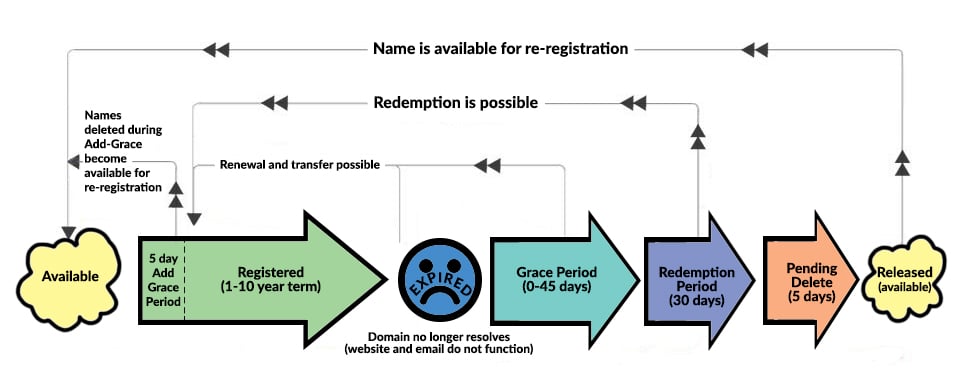
Domain drop catching—the act of snatching up an expired domain name the moment the registration has lapsed—has become a profitable business. Drop catchers wait with bated breath for companies to slip up because they know it means a big payday for them. There are a few things you should know about the business of domain drop catching that will hopefully help you avoid such an ordeal in the first place and prepare just in case it happens to you anyways.
How do people let their mission-critical domain names expire?
If you are wondering how in the world someone could forget to renew their domain names, you would be surprised to learn that it happens more often than you think. Even though domain owners can set their domains to auto-renew and lock in their domain terms for up to 10 years, domain names still don’t renew on time. The reason being—many reasons really—that people are human.
As perfectly imperfect people, we do things like:
- Procrastinate – Do I want to renew this domain?
- Forget – Where is this domain registered? What email address did I use?
- Ignore emails – Oh, you sent me 6 reminders about my domain expiring? Didn’t see it.
- Genuinely don’t see emails – That’s on your domain registrar to improve their email deliverability.
- Don’t use auto-renew – I’ll remember to renew it on time—famous last words.
- Have insufficient funds – I didn’t realize my credit card on file was expired!
If you are serious about keeping your domain name long-term, we highly recommend extending the term to the maximum number of years allowed. The renewal fee may cost you $100-200 today but will give you peace of mind and significantly reduce the chances of your domain accidentally expiring (which could cost you up to 7-figures down the road).
How to Set Your Domain Admin Up for Success
Get expert advice and answers to questions such as who you should list as the domain owner and why you should never let a third-party register a domain on your behalf.
What happens when your domain name expires?
Every top-level domain has its own policy for what happens to a domain name when it expires. Some domain registries offer a grace period that allows you to renew your domain without repercussions. A redemption period typically follows. You can still renew your domain name in this period with an associated redemption fee. Once your domain passes through the phases offered, it is deleted by the registry and released to the general public for anyone to register.

RELATED ARTICLE: 3 Consequences of Letting Your Domain Names Expire
Who is behind domain drop catching?
Domain drop catching has become a gigantic business, and organizations need to be aware. Whether you are a potential buyer interested in acquiring a domain name or a company trying to recover a domain you let expire, you should know who you are dealing with.
In both scenarios, it’s more than likely the domain name you want is owned by a domain investor. Many people make a living off reselling or “flipping” drop chatched domain names. They use sophisticated algorithms to sort through the tens of thousands of domains expiring daily to identify those with dictionary terms, acronyms, and even those with traffic from the previous owners.
People are often surprised by the asking price for domains. We can tell you right now a domain investor isn’t going to jump for joy at a $1,000 offer. Domain investors consider many factors when investing in a domain name. If the domain has very high traffic with backlinks that still point to it, can be used in many ways, or was previously owned by a well-known company, they know they can sell it for a premium price.
In 2007, Parker Hannifin acquired Rectus and its subsidiary Tema, along with the domain name tema.com. After renewing the domain for many years, Parker Hannifin accidentally let it expire in 2020. The domain was auctioned off at DropCatch.com and reached $128,938.
What should you do if you lose your domain name to a drop catcher?
Our Corporate Brand Team is comprised of industry veterans and experienced negotiators who can offer advice and guidance in helping you recover your digital asset.
Request more information about our enforcement services +1.888.982.7940